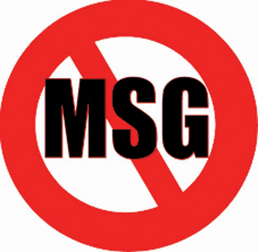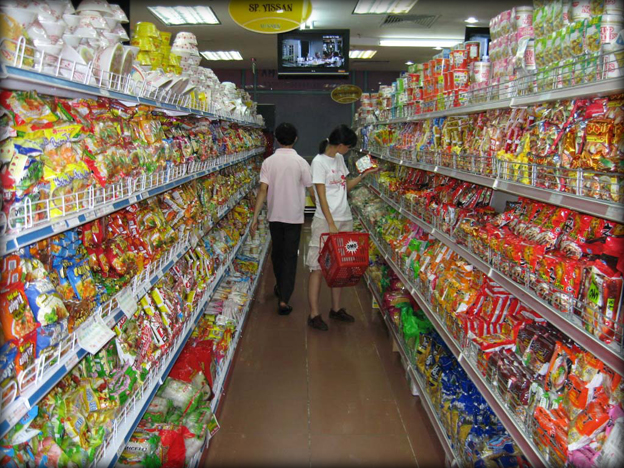It
is more about
Maggi Noodles may be in the dog house in India, but
the bigger issue in Sri Lanka is the widespread use of monosodium
glutamate in food items
by Carol Aloysius
 Is Maggi Noodles, the near ubiquitous go-to two-minute hunger buster,
safe to eat? Or is it not? This is the question to which everyone is
demanding answers for these days. Is Maggi Noodles, the near ubiquitous go-to two-minute hunger buster,
safe to eat? Or is it not? This is the question to which everyone is
demanding answers for these days.
As parents, grandparents, primary school children and adolescents
wait for a final ruling from the health and food authorities, the
product continues to be banned in several states in neighbouring India,
after the country's researchers, following extensive tests, found that
everyone's favourite noodle packets contained excessive levels of lead
and monosodium glutamate (MSG).
The tests were carried out due to pressure from sections of the
Indian public. Lankan food and health authorities meanwhile say they are
still mulling the contentious issue and argue that the tests done by the
Indian researchers may not be appropriate for the local products.
What they want instead is hard scientific proof from tests of samples
carried out here, which are yet to be released.
"Right now we are closely monitoring the situation and collecting as
much information as we can.
Till we get results of samples sent for testing to our government
approved laboratories, we will not resort to such drastic action as
removing the noodle packets from shop shelves.
We need clear, reasonable evidence that they contain something that
is injurious to human health," said Acting Director, Environment and
Occupational Health, Ministry of Health, Dr H.D.B. Herath .
"There are many issues involved and they are also different from
those in India," he claimed, explaining, "Take the packaging for
example. In our local products, MSG is packed in separate sachets, which
contain a mix of flavouring agents.
The consumer can either add them to the noodles or eat without doing
so."
When asked about regulations and policy regarding the use of MSG, Dr.
Herath said more than regulations the emphasis in Sri Lana was on Good
Manufacturing Practices (GMP).
"Most traders and manufacturers of food items are familiar with this
as they have attended our regular awareness raising programmes.
 "However,
we DO have a flavour and flavour enhancer regulation, which was updated
in 2011, under the Food Act No26 of 1980," he said explaining that the
regulations clearly state that any flavours and enhancers such as MSG
used in food for children under three years of age should carry labels
clearly indicating the levels used in those products. "It is a legal
requirement," he stressed. "However,
we DO have a flavour and flavour enhancer regulation, which was updated
in 2011, under the Food Act No26 of 1980," he said explaining that the
regulations clearly state that any flavours and enhancers such as MSG
used in food for children under three years of age should carry labels
clearly indicating the levels used in those products. "It is a legal
requirement," he stressed.
When asked whether it was possible for one ministry to ensure
traders/manufacturers, adhere to this regulation island wide, he
responded with an emphatic "Yes" and explained, "Our network of over
2,000 trained Public Health Inspectors keep track of all packetted food
items on a day to day basis and report back to us regularly.
"If they feel there is something wrong with them, they report back to
us and we take immediate action determined by the Food Advisory
Committee, the main regulatory authority, headed by the Director General
of Heath Services, Dr P.G. Mahipala."
Challenge
When questioned about the Health Ministry's biggest challenge, when
considering the health impacts of MSG in food, especially on young
children, and whether MSG is actually needed for the body, he
emphatically responded, "Our body does NOT need MSG for its growth,"
elaborating that rather than contributing to body growth, MSG can harm
the human system over a long period, causing allergies and other serious
symptoms.
MSG has however, become a part of the daily ingredient in many
households, with people continuing to crave for it because of its
flavour enhancing qualities and MSG becoming a must add on condiment
from everything from buns, chili fries and fried rice. Isn't there a way
of regulating its use in such food?
Problem
Dr. Herath admitted that the biggest problem is that this flavor
enhancer is often hidden amidst other ingredients and listed only if
labelled as a separate ingredient in the food, even though it may take
up a fair share of the ingredients used. "If produced on a mass scale,
like bottled sauce or packaged food, it is easy to obtain a sample for
testing purposes.
But measuring food that is served directly from the pot to the table
in a restaurant is more difficult, as for example fried rice, or Chinese
noodles, or some other spicy dish," he explained.
When asked about the options, he said the option was to encourage
both the trader and the consumer to switch to gluten free foods.
"We are constantly holding discussions with traders and manufacturers
as well as the public to raise awareness to this end. Our goal is gluten
free food. We're trying to ensure that in future no one in Sri Lanka
eats food containing MSG."
NCDs
When asked if it was not possible, given the high demand for such
foods, he said, "Then we must definitely restrict its usage in
children's food, so that their taste buds don't get used to it as a
habit from early childhood.
If parents can help change their food habits early and switch to more
healthy foods, they will not be vulnerable to Non-Communicable Diseases
(NCDs) early in life as well".
Does he think it is possible for such a miracle in the near future?
"Everything is possible. But it takes time. You can't change people's
habits overnight".He said as Sri Lanka has an open market, there are
many kinds of food manufactured by various companies that consumers can
choose from. "My advice is to ensure what they buy is healthy.
MSG only intensifies food flavour. We don't need it. Read the labels
carefully and make a wise informed choice," he cautioned.
|
Awaiting results
Assistant Director
Technical Services, Industrial Technology Services ( TS),
A.S. Pannila, said he was still awaiting results of tests
carried out by their lab. "Testing for lead is
straightforward, as we have often tested products for heavy
metals.
But testing MSG in trace
levels is a challenge.
We can't release any
statement unless we have scientific evidence," he said,
adding that their lab had not received any request from the
Food Authority to do any tests .
"The tests we have
done here are on our own initiative." |
|
MSG is harmful to good health
Echoing similar
sentiments, Head of Toxicology Information Unit, National
Hospital Sri Lanka, Dr Waruna Gunathileka, underscored the
serious health impacts of MSG as well as lead, which the
Indian researchers claimed were found in their products.
"Lead can damage the bones
and neurological system and affect the brain of young
children.
If it goes into the
blood stream it can affect their liver and cause kidney and
liver failure. MSG has similar effects. Apart from
carcinogenic effects, it can cause neurological problems,
low IQ and severe allergies as well as affect the liver and
cause the body system to shut down. Apart from this, studies
have shown that it raises pressure since it is a salt, and
could cause long term effects such as obesity, stunting,
seizures and reproductive problems. The latest evidence
suggests a link to diabetes. Children are at highest risk.
No child under five years should be given any food
containing MSG." |
|
We love Maggi
Walking down the aisles of
any supermarket today one is bound to find more than a few
food items that contain MSG. The food additive is in soups,
salad dressings, processed meats, cheeses and several frozen
diet entrees.
A visit to one of these
supermarkets is a journey of discovery. Not only are there
more than just a handful of foods containing MSG, the
management seems blissfully unaware both of the deadly harm
it could cause to human health or even point out specific
items, which contain the food additive.
Walking down several
aisles containing a bewildering array of soups, processed
foods, salad dressings, sauces, and flavouring agents, a
supermarket manager challenges, " Tell me how can we
possibly know how to spot MSG in these foods? Can you? Not
unless they have separate labels with MSG written on them".
Informed or not, most
consumers find this a futile exercise, since even if a
particular item did contain MSG, it would be often labelled
in code form, which is just gibberish to the average
consumer.
So what makes Maggi
Noodles tick? What do Maggi Noodles fans have to say? Are
they aware of the health risks expressed by the health
officials?
Many housewives with
little time to spare, say it is the convenience of cooking a
meal in less than two minutes that prompts them to buy the
products.
Nicola who has two
children aged 5 and 8 says, "As a working woman, cooking a
packed meal like rice and curry for my kids means waking up
before dawn to cook it. With an instant meal like Maggi
Noodles, I can wake up later. The kids can either have their
noodles served hot from the fire for breakfast and take
sandwiches for lunch at school.
Since they love eating it,
it is so much easier to get it down their throats. Even my
fussy husband enjoys it. That leaves us all with more time
to get our day off to an early start."
Young Sisira, 9, a Maggi
Noodles fan, says he's been hooked on Maggi noodles, since
the age of four.
"I was fascinated with it
after my mother taught me to swirl it around with my fork
and eat it like a wriggling worm. I eat it plain only mixing
it with the flavour from the sachet."
Asked if she knew about
the health impacts of eating these Noodles, 14 year old
Rasika says, "Our teachers at school have repeatedly warned
us against eating it.
It is even banned in our
school canteen. But I insist on Maggi Noodles for dinner at
least three times a week. So my mother buys me a few
packets. I eat my noodles with tomato sauce (no veggies.)
and lots of the spicy mix in the sachets.
Svendrini 16, believes she
deserves to treat herself to food she likes after a hard day
of study. "Whatever the health impacts, Maggi Noodles is my
favourite food," she says.
As for her boyfriend
Shiraz, a plateful of Maggi Noodles drenched in tomato
sauce, hot chili sauce with a liberal sprinkling of MSG, is
" food fit for gods".
What do our readers think?
Email your opinions to:
features@ sundayobserver.lk |
| MAGGI
Noodles in Sri Lanka
Statement from Nestlé Lanka PLC:
The quality and safety of
our products is the top priority for the company.
Glutamate is naturally
present in ingredients such as onions, tomatoes, mushrooms
and wheat flour, among many others. Monosodium Glutamate is
a permitted flavour enhancer.
MAGGI Noodles is in
compliance with the local regulatory framework.
MAGGI Noodles is locally
produced at our factory in Pannala, Kurunegala, maintaining
all the food laws and regulations applicable for Sri Lanka,
winning the trust of consumers for 30 years.
We regularly monitor our
products and raw materials for food safety as part of our
stringent quality control processes, including testing by
accredited laboratories. These tests have consistently shown
MAGGI Noodles to be compliant with all food safety norms and
is safe for consumption by the entire family. |
|

